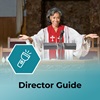How often have you sat through a Bible study where an unskilled leader asks questions that are downright boring? The evening seems to drone on and on, going nowhere. People yawn and start side conversations. They leave wondering why they devoted three hours to that. Whether you use a published study guide or write your own, the key to an invigorating Bible study is the ability to ask good questions. If you plan your meeting using carefully thought-out questions, you’ll be on your way to leading a study that changes lives.
Good Bible study guides and leaders use three types of questions in each lesson, preferably sprinkling them throughout in a way that keeps the participant on his toes. If the study guide you choose doesn't include all these types, you may need to supplement it.
What Does It Say?
The observation question simply asks, What does the text say? It usually has a single right answer that is clear from the passage. Sadly, over 90 percent of the questions in many published studies are observation questions. They'll bore your group to mutiny, even if they are well-written. Look for study guides that ask observation questions that don’t insult the intelligence of your group like, What does Jesus say in verse 14? UGH!
Now don't get me wrong. A study needs observation questions. They direct the student's attention to the biblical text and move the lesson in a definite direction. They clarify what the passage says and what it doesn't say. But like white bread, they get boring if that's all there is. So look for a study that uses observation questions sparingly (no more than one third of most lessons) and phrases them creatively. For example, "Read Matthew 22:34-40, Deuteronomy 6:5, and Leviticus 19:18. Summarize the two greatest commandments."
Note there is one right answer that is clear from the three texts. I could have said, "What do Matthew 22:34-40, Deuteronomy 6:5, and Leviticus 19:18 say?", but that's boring and insulting.
Here's another: "On the night before He was to suffer and die on the cross, Jesus explained and clarified the second of these commandments. Read John 13:34. How does this new commandment differ from the old commandment?" This calls the reader to observe, and then make a comparison between two facts. There is a right answer, and I assume that my readers are smart enough to find it. This observation question leads naturally to the next question.
What Does It Mean?
The interpretation question asks: What does the text mean? Although each passage has only one meaning, that meaning is not necessarily obvious from the text. Interpretation questions may require some additional digging. You may need to understand the passage within the context of the book or the whole of Scripture. You may need to do a word study on a Greek or Hebrew expression. You may need to use a Bible dictionary or study the cultural setting. You may need to synthesize the answers from two or three preceding observation questions to draw the true meaning from the text.
Interpretation questions often ask how, why, or what do you think…? Observation questions, by contrast, usually ask "what" or "when". Interpretation questions add a bit of meat to that white bread. They should make up about one third of the study.
Here's an example: "How does fulfilling this new commandment fulfill the first and greatest commandment?" Although the answer is pretty easy, it does take some understanding to connect the two. The text doesn't give the answer.
The next question in that chapter is: "With this new command, was Jesus raising or lowering the standard for believers? Explain". This is a "what-do-you-think?" type of question. It stretches the student by requiring an explanation.
Interpretation questions are the meat of a good Bible study. They draw you into the text in new, creative ways. They make you think and are the bridge between observation and application.
Who Cares?
The application question poses a challenge: "Who cares?" or "What I must do about it?" The answer may be implied from the text, but it requires the student to get personal.
Application questions are the key to a good Bible study. Unfortunately, most study guides spend 95 percent of their time on observation and interpretation, leaving only the last question or two for "Putting it to Work" or "Summing Up". And let’s face it—most discussion groups don't get to the last question, leaving the members with a boring academic study. Such studies don't bear fruit; they don't result in changed lives. Isn't the reason we're doing this to see God change lives?
Don't be afraid of application questions that get personal. Some study guides actually list such questions as personal, warning the leader not to ask them in the group setting. This short-changes your group. People today are seeking deeper meaning in life. Go ahead and ask the tough questions. Probe a bit after your group has developed some trust. Follow up on trite answers. Gently and lovingly prod your group members to growth-oriented application and accountability. Of course, you as a leader will need to model the vulnerability needed to make these questions life-changing. A group will seldom delve deeper than the leader models. You set the pace and the example, so open up your life and watch your group members open theirs. You will all grow.
Here are some application questions that follow the above interpretation questions: "What are some practical ways you can show love to one another? Which of these is easy for you? Which involve sacrifices? What are some obstacles you find in loving others?"
These questions are direct. They are personal. They ask for a commitment. They probe feelings, motivations, and obstacles. They are pretty tough to ignore. And they result in people looking deeply enough to allow the Holy Spirit to call them to repentance and change.
The reason I continue leading small groups is because I have seen lives that have been changed when people get serious about applying the Word of God to the common, everyday parts of their lives. Observation and interpretation questions set the stage for rightly handling the Word of God. But if your study is short on application, you might as well stay home and watch TV.









